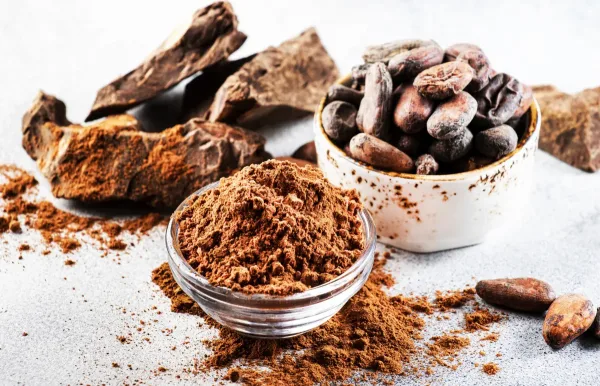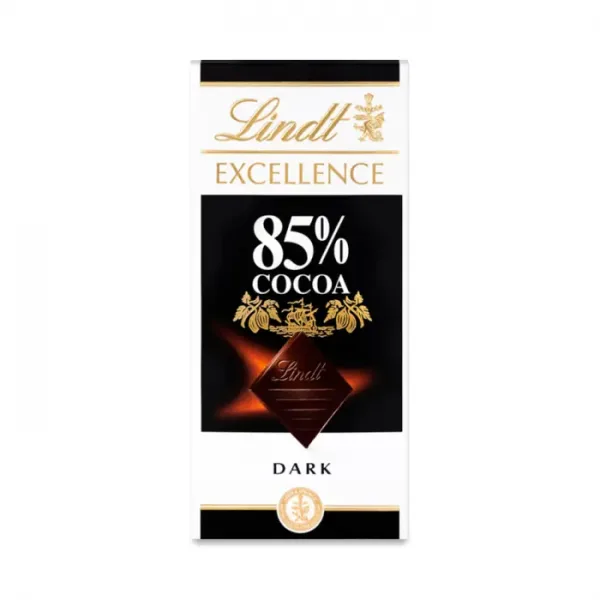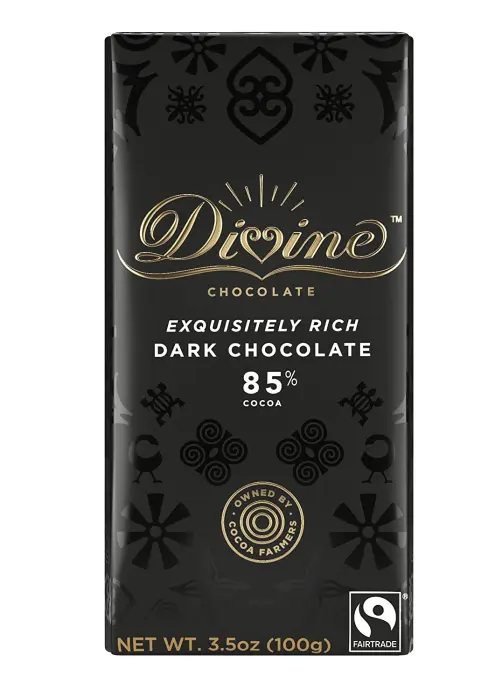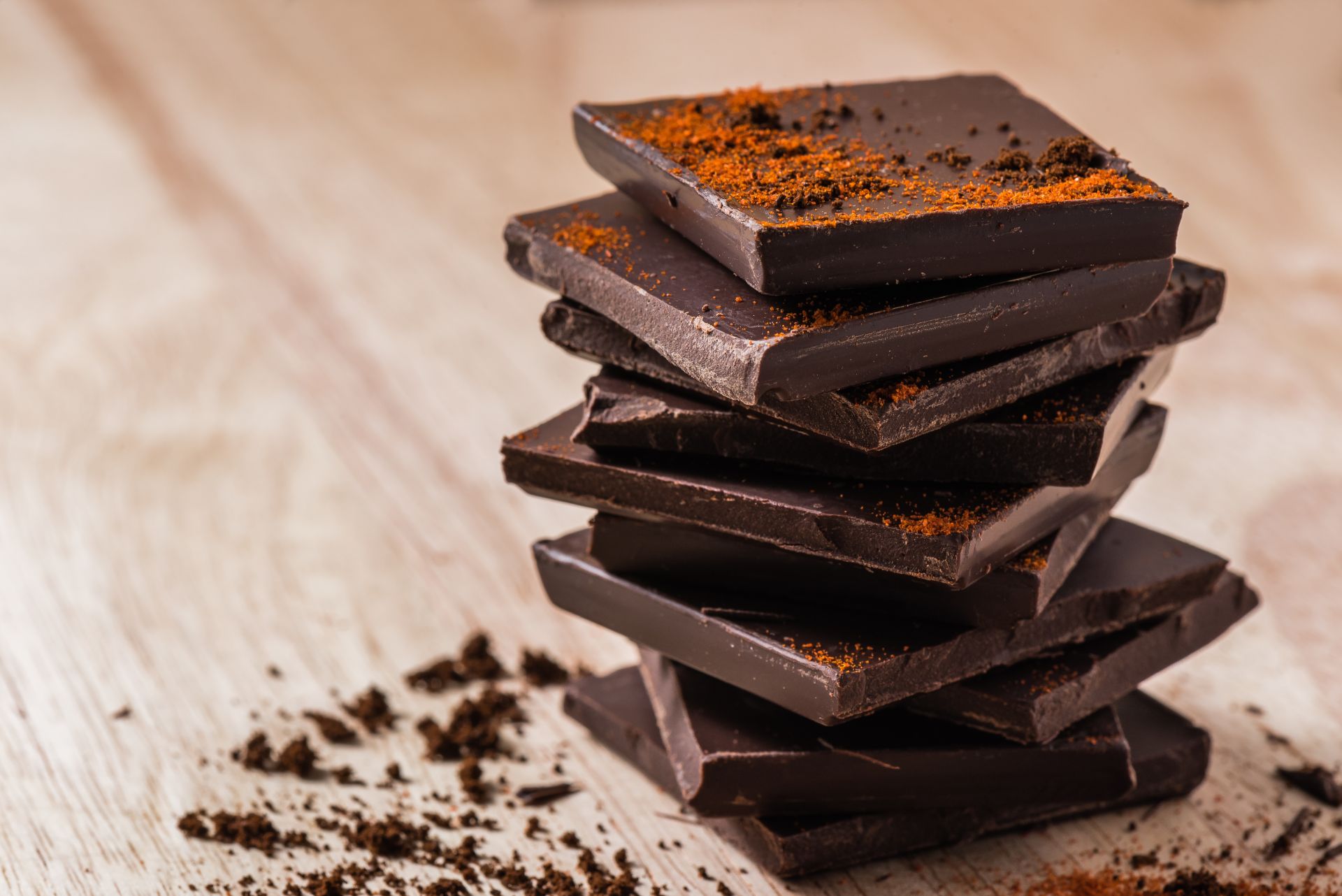After being diagnosed with a fatty liver (aka NAFLD), we know we have to give up sugar and sweets, among other things.
In my case, this was the biggest challenge – and I am sure I’m not alone here. But does this mean we’re not even allowed to have low sugar chocolate such as dark chocolate?
Recent studies found that dark chocolate might help those with a fatty liver. Antioxidants in dark chocolate can help reduce the oxidative stress in a fatty liver, but also help with weight loss, which is important in reversing NAFLD.
So the great news is that you don’t really have to stop eating chocolate if you have a fatty liver disease, but it matters a lot what type of chocolate you’re eating.
The benefits I was talking about above only come from dark chocolate and not our regular, sugar-filled delights.
Is chocolate bad for fatty liver disease?

Most chocolate bars can be considered bad for a fatty liver because of their high sugar, low cocoa powder contents.
They might also have other chemicals, artificial flavors and preservatives as well as other hydrogenated fats – which are bad fats for the liver, such as those in coffee creamer. However, dark chocolate is not as bad for the liver – on the contrary!
I’ve mentioned studies that concluded that dark chocolate can actually help those diagnosed with a fatty liver disease and I want to get a bit more in depth on that matter.
For example, we have a recent study from Sapienza University in Rome (source) which found that polyphenols contained in cocoa (the main ingredient in dark chocolate) can have a positive effect over the live of patients suffering from NASH.
These polyphenols improve the endothelial function of the liver, allowing it to function normally, by reducing the oxidative stress.
Another study from 2010 (source), this time by European Association for the Study of the Liver had similar findings.
This particular study focused on the high blood pressure in their abdomen, which was reduced to those who consumed dark chocolate.
In other words, dark chocolate is not only not bad, but actually helpful when it comes to those suffering from a fatty liver or more advanced liver problems.
IMPORTANT! All studies used chocolate with at least 85% cocoa, so we can assume that this is the chocolate we should go after, and nothing lower than that.
Can you eat milk chocolate if you have fatty liver?
Milk chocolate is not recommended for those suffering of a fatty liver. Not only that it shows no benefits like dark chocolate does, but it can also produce extra harm to the liver.
Milk chocolate is usually high in sugar, which is one of the main things to avoid after being diagnosed.
We also have scientific proof behind these statements.
The first study I mentioned above had half of its participants eat 40 grams of dark chocolate (85% cocoa) each day, while the other half ate the same amount of milk chocolate (35% cocoa).

The test group (those who ate dark chocolate) showed, after just two weeks, a significant improvement in the liver function results. No improvement was noticed in those consuming milk chocolate.
An important question is not answered in the study’s papers regarding the consumption of milk chocolate. That is if the test results came back worse in this case or they remained the same.
However, it’s not a risk one should take, in my opinion especially if we’re talking about milk chocolate with added sugar.
There are alternatives with stevia and other healthier sugar alternatives (like erythritol or maltitol) which are better choices if you really need to have a bit of milk chocolate. But I’d say it’s generally better to just stay away from it completely.
However, not only that dark chocolate is allowed if you have a fatty liver, but it’s actually beneficial for improving liver functions.
The only downside is that dark chocolate doesn’t really solve sugar cravings we might have as it has a completely different taste from the regular, sugary one we’re used to eating.
Best dark chocolate for fatty liver
Now that you know dark chocolate helps a fatty liver, you might wonder which brands are best for you.
The reality is that it doesn’t matter too much. Go for bars with 85% cocoa or more and you’re already doing your liver a favor.
Do check the ingredients on the package to make sure it doesn’t have any odd stuff, but usually there won’t be anything bad in these dark chocolate bars.
I personally have two different brands that I eat regularly. I wasn’t a big dark chocolate fan until recently, but these two are my favorite now and I will recommend them below.
I decided to go for organic chocolate, as I consider it the better and healthier way of eating.
But non-organic dark chocolate should have the same amount of antioxidants that organic one does, so it doesn’t really matter from this point of view.
They do taste pretty much the same though so you can still try to find your own if for some reasons you don’t like my recommendations below (note that the links below are affiliate links):
1. Lindt Excellence

This is what I eat the most since I was a fan of Lindt chocolate before having to opt for the dark one.
I eat one bar in three or four days, with each portion as one of my two snacks throughout the day.
Note: I’m linking to a 12-pack below, which should be enough for up to 2 months.
2. Divine Chocolate Bar

This is more expensive usually and I can’t really say that it tastes different. I usually go for this just to vary things up.
It also comes in a pack of 10 bars, which makes things easier with restocking as it also lasts up to 2 months on average.
Conclusion
Following the results of the studies mentioned above, I decided to make dark chocolate part of my diet and consume it more regularly than before.
I have to admit that I am on the side that doesn’t really appreciate the taste of dark chocolate. I’ve been avoiding it until now because of that.
But after finding how beneficial it is to one’s health, I am starting to consume 20 to 40 grams a day, usually as one of the two daily snacks. If it helps my body heal and stay healthy, I will definitely do it!
I also shared some healthier desserts for fatty liver – make sure to check those out as well if you still need something to satisfy they sweet tooth. But for the rest of the time – stick to dark chocolate as researches found out it helps.

I was diagnosed with a fatty liver back in 2014 and managed to reverse it by mid-2015. Since then, I’ve been studying it, continuously updating my knowledge with the latest scientific findings and practical approaches to give others the help they need to reverse their condition.
My approach to managing fatty liver is holistic, balancing scientifically-backed information with real-life, practical advice based on personal, direct experience.
I am also the admin of the Fatty Liver Support Group on Facebook and the Fatty Liver Subreddit.


I bought the Lindt bar but it says it uses Sorbitol and medical articles say it is not fit for human consumption. What about this I left the rest and did not eat it
You probably did not purchase the one I recommended. The one I recommend doesn’t have sorbitol.
However, sorbitol is a sugar alcohol and is one of the safest sugar substitutes to use (although the more popular erythritol and maltitol are better). Still safe to eat though – even though the actual chocolate I recommend above doesn’t have it.
I’m confused. I’ve cut out dark chocolate due to Saturated Fats. Even in the Lindt there is 28 grams and 9 grams of sugar…Isn’t that way too much of the bad stuff?
Yes, some of these recommendations seem confusing indeed. Looking at the nutritional info alone, I would recommend people to stay away from it. But it appears that the other components of dark chocolate make it a good choice, despite the negatives.
Of course, we should still keep calories under control, as well as the amounts of fats and carbs, adjusting them with the consumption of chocolate.
Alter Ego 100% dark is delicious and you really do get used to no sugar after a while.